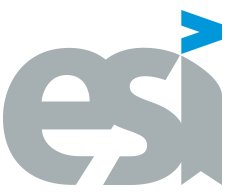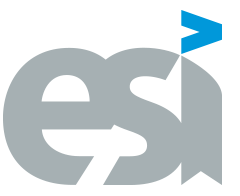Shortcuts

The Institute of Technologies and Information Systems (ITSI), located on the Ciudad Real campus of the University of Castilla-La Mancha, was inaugurated on May 10, 2010.
ITSI's mission is to promote research in different areas of Computer Engineering in order to develop, and transfer to organizations, technologies and information systems that contribute to the progress and well-being of society, especially the Castilian Manchego.
ITSI's vision is to be the leading research institute in the field of information technologies and systems, of national and international reference, especially in the field of applied research.
The ITSI has approximately 70 researchers with extensive experience both in basic research (acquired by participating in multiple regional and national research projects, and in international research stays) and in applied research (in international projects, H2020 calls and contracts in collaboration with public bodies and companies). The researchers carry out their work in ten Research Groups that address different lines related to information technologies and systems, all of them cutting-edge and aligned with national and European social priorities.
In addition, the ITSI has the WeCareLab, a transversal initiative for all Research Groups, focused on the application of ICT to the Health and Well-being of society.
In its entrepreneurial facet, the ITSI hosts several Spin-Offs made up of members of the center, and which offer society a great diversity of services based on the knowledge generated as a result of the basic and applied experience gained over the years. , and the result of success in many competitive calls and contracts with companies.
The research groups and their members constitute the critical mass of the ITSI, and where all the potential for innovation and research with respect to Information Technologies and Systems is developed. These groups and their lines of research are as follows:
Finally, it is worth mentioning that the Institute's facilities have a wide variety of laboratories and equipment with highly powerful specialized hardware and software, as well as its own tools developed by the research groups.

| Cookie | Duration | Description |
|---|---|---|
| cookielawinfo-checkbox-advertisement | 1 year | Set by the GDPR Cookie Consent plugin, this cookie is used to record the user consent for the cookies in the "Advertisement" category. |
| cookielawinfo checkbox analytics | 11 months | This cookie is set by GDPR Cookie Consent plugin. The cookie is used to store the user consent for the cookies in the category "Analytics". |
| cookielawinfo checkbox functional | 11 months | The cookie is set by GDPR cookie consent to record the user consent for the cookies in the category "Functional". |
| cookielawinfo-checkbox-Necessary | 11 months | This cookie is set by GDPR Cookie Consent plugin. The cookies are used to store the user consent for the cookies in the category "Necessary". |
| cookielawinfo-checkbox-fastrs | 11 months | This cookie is set by GDPR Cookie Consent plugin. The cookie is used to store the user consent for the cookies in the category "Other. |
| cookielawinfo checkbox performance | 11 months | This cookie is set by GDPR Cookie Consent plugin. The cookie is used to store the user consent for the cookies in the category "Performance". |
| CookieLawInfoConsent | 1 year | Records the default button state of the corresponding category & the status of CCPA. It works only in coordination with the primary cookie. |
| viewed_cookie_policy | 11 months | The cookie is set by the GDPR Cookie Consent plugin and is used to store whether or not the user has consented to the use of cookies. It does not store any personal data. |
| Cookie | Duration | Description |
|---|---|---|
| _ga | 2 years | The _ga cookie, installed by Google Analytics, calculates visitor, session and campaign data and also keeps track of site usage for the site's analytics report. The cookie stores information anonymously and assigns a randomly generated number to recognize unique visitors. |
| _ga_660H2MJ19C | 2 years | This cookie is installed by Google Analytics. |
| _gat_gtag_UA_199993715_1 | 1 minutes | Set by Google to distinguish users. |
| _gid | 1 day | Installed by Google Analytics, _gid cookie stores information on how visitors use a website, while also creating an analytics report of the website's performance. Some of the data that are collected include the number of visitors, their source, and the pages they visit anonymously. |
| CONSENT | 2 years | YouTube sets this cookie via embedded youtube videos and registers anonymous statistical data. |
| Cookie | Duration | Description |
|---|---|---|
| VISITOR_INFO1_LIVE | 5 months 27 days | A Cookie Set by YouTube to Measure Bandwidth That Determine Whether The User Gets The New Or Old Player Interface. |
| YSC | Session | YSC Cookie is set by youtube and is used to track the views of embedded Videos on YouTube Pages. |
| yt remote connected devices | never | YouTube Sets This Cookie To Store The Video Preferences of The User Using Embedded YouTube Video. |
| yt remote device id | never | YouTube Sets This Cookie To Store The Video Preferences of The User Using Embedded YouTube Video. |



